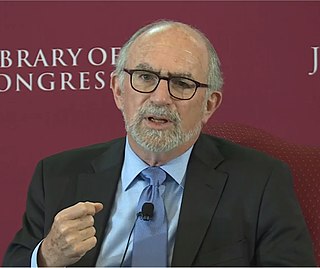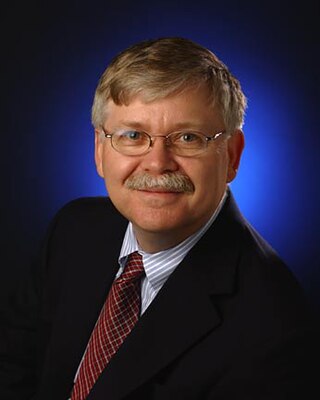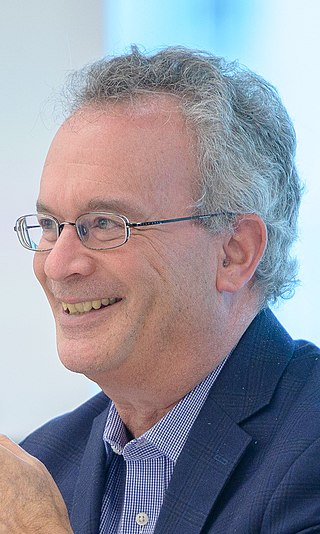
The Hoover Institution is an American public policy think tank and research institution that promotes personal and economic liberty, free enterprise, and limited government. While the institution is formally a unit of Stanford University, it maintains an independent board of overseers and relies on its own income and donations. Fellowship appointments do not require the approval of Stanford tenure committees. It is widely described as a conservative institution, although its directors have contested its partisanship.
William Julius Wilson is an American sociologist. He is a professor at Harvard University and author of works on urban sociology, race and class issues. Laureate of the National Medal of Science, he served as the 80th President of the American Sociological Association, was a member of numerous national boards and commissions. He identified the importance of neighborhood effects and demonstrated how limited employment opportunities and weakened institutional resources exacerbated poverty within American inner-city neighborhoods.

Baruch Samuel Blumberg, known as Barry Blumberg, was an American physician, geneticist, and co-recipient of the 1976 Nobel Prize in Physiology or Medicine, for his work on the hepatitis B virus while an investigator at the NIH and at the Fox Chase Cancer Center. He was president of the American Philosophical Society from 2005 until his death.
The John W. Kluge Prize for the Study of Humanity is awarded since 2003 for lifetime achievement in the humanities and social sciences to celebrate the importance of the Intellectual Arts for the public interest.
The Kluge Scholars Council is a body of distinguished scholars, convened by the Librarian of Congress to advise on matters related to scholarship at the Library, with special attention to the John W. Kluge Center and the Kluge Prize. Through discussion and reflection, the Council assists in implementing an American tradition linking the activities of thinkers and doers, those who are engaged in the world of ideas with those engaged in the world of affairs.

Chilamkuri Raja Mohan is an Indian academic, journalist and foreign policy analyst. He is the Director of the Institute of South Asian Studies, National University of Singapore. Previously, he was the founding Director of Carnegie India. He has also been a Distinguished Fellow at the Observer Research Foundation, New Delhi and Senior Fellow at the Centre for Policy Research, New Delhi, and prior to that, a professor at the S. Rajaratnam School of International Studies, Nanyang Technological University, Singapore and Professor of Centre for South, Central, Southeast Asian and Southwest Pacific Studies, School of International Studies at Jawaharlal Nehru University, New Delhi, India. He was the Henry Alfred Kissinger Scholar in the John W. Kluge Center at the Library of Congress, Washington, D.C. during 2009-10.
Wayne August Wiegand is an American library historian, author, and academic. Wiegand retired as F. William Summers Professor of Library and Information Studies and Professor of American Studies at Florida State University in 2010.

Bruce W. Jentleson is a professor of public policy and political science at Duke University, where he served from 2000 to 2005 as Director of the Terry Sanford Institute of Public Policy. He previously was a professor at the University of California, Davis and Director of the UC Davis Washington Center. In addition to his academic career, he has served in a number of foreign policy positions in Democratic administrations.

Carl Elliott is an American academic working as a professor in department of philosophy at the University of Minnesota.

David H. Grinspoon is an American astrobiologist. He is Senior Scientist at the Planetary Science Institute and was the former inaugural Baruch S. Blumberg NASA/Library of Congress Chair in Astrobiology for 2012–2013.
The Cary M. Maguire Center for Ethics and Public Responsibility serves the campus of Southern Methodist University and the greater Dallas area. The university-wide center supports student and faculty ethics-related education and activities, as well as outreach to community, in both private and public institutions.

Steven J. Dick is an American astronomer, author, and historian of science most noted for his work in the field of astrobiology. Dick served as the Chief Historian for the National Aeronautics and Space Administration from 2003 to 2009 and as the Baruch S. Blumberg NASA/Library of Congress Chair in Astrobiology from 2013 to 2014. Before that, he was an astronomer and historian of science at the United States Naval Observatory in Washington, DC, from 1979 to 2003.

Melvyn Paul Leffler is an American historian and educator, currently Edward Stettinius Professor of History at the University of Virginia. He is the winner of numerous awards, including the Bancroft Prize for his book A Preponderance of Power: National Security, the Truman Administration and the Cold War, and the American Historical Association’s George Louis Beer Prize for his book For the Soul of Mankind: The United States, the Soviet Union, and the Cold War.

Michael Robert Auslin is an American writer, policy analyst, historian, and scholar of Asia. He is currently the Payson J. Treat Distinguished Research Fellow in Contemporary Asia at the Hoover Institution, Stanford University, a Senior Fellow in the Asia and National Security Programs at the Foreign Policy Research Institute, and a senior fellow at London's Policy Exchange. He was formerly an associate professor at Yale University and a resident scholar and director of Japanese studies at the American Enterprise Institute, a conservative think tank in Washington, D.C.
Rev. David Hollenbach, S.J. is a Jesuit priest, professor, author, and moral theologian currently serving as the Pedro Arrupe Distinguished Research Professor of the Walsh School of Foreign Service at Georgetown University. He is a consultant to the Jesuit Refugee Service and is the recipient of the John Courtney Murray Award from the Catholic Theological Society of America in 1998.
Jussi M. Hanhimäki is a Finnish historian, specializing in the history of the Cold War, American foreign policy, transatlantic relations, international organizations and refugees.

James M. Goldgeier is a professor of international relations at the School of International Service at American University in Washington, D.C., where he served as dean from 2011 to 2017.
Benjamin O. Fordham is a political scientist at Binghamton University.
John Bew is Professor in History and Foreign Policy at King's College London and from 2013 to 2014 held the Henry A. Kissinger Chair in Foreign Policy and International Relations at the John W. Kluge Center.

Lucianne Walkowicz is an American astronomer, artist and activist. They were based at the Adler Planetarium until 2022 and are noted for their research contributions in stellar magnetic activity and its impact on planetary suitability for extraterrestrial life.












